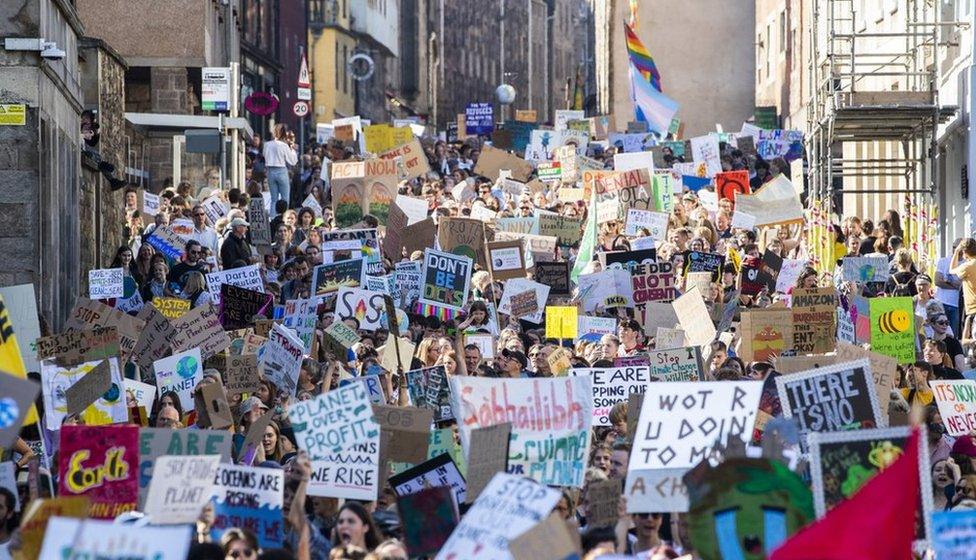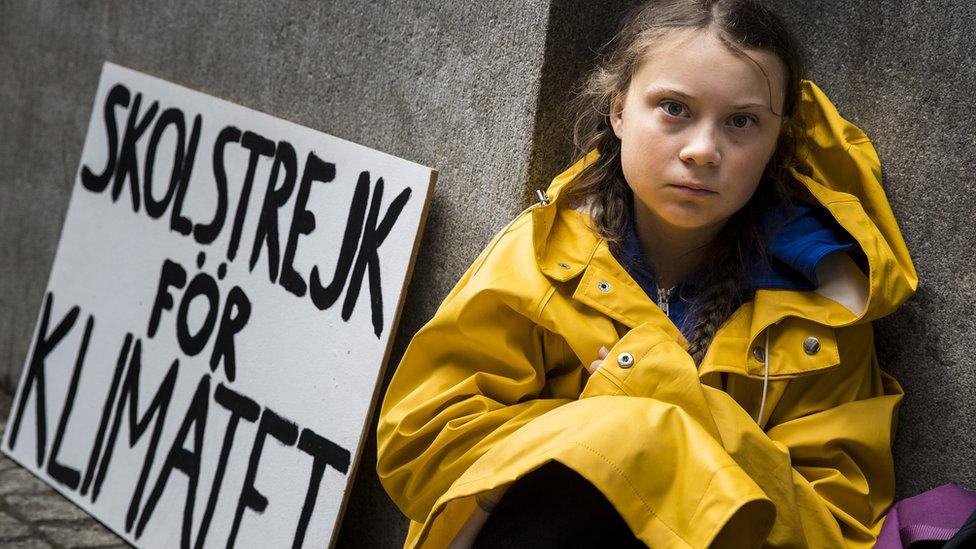What is Collins Dictionary's 2019 word of the year?
- Published

Environmental campaigners in Edinburgh during a mass global "climate strike" protest in September
A phrase which hit headlines after millions of people joined climate change protests around the world has been named 2019's word of the year.
"Climate strike" was picked by Collins Dictionary after being used on average 100 times more this year than in 2018.
The term was first recorded four years ago when pupils skipped school to protest over global warming - but the movement has grown over the last year.
Collins said it has also recognised the word "non-binary" as a specific term.
Lexicographers said it added non-binary in recognition of "changes in how people relate to each other and define themselves".
Non-binary people do not identify as either male or female and often prefer the pronouns they or them instead of he or she.
It comes after pop star Sam Smith said this year that they identified as non-binary, joining other celebrities including Me Too campaigner Rose McGowan and Queer Eye star Jonathan Van Ness.

Singer Sam Smith said "I'm not male or female" during an interview in March
Also added by Collins are the terms "double down", "influencer", "hopepunk" (a TV genre) and "deepfake ("a digital imaging technique").
Climate strike
The 2019 word of the year - which will get its own entry in the next edition of the dictionary - is defined by Collins as "a form of protest in which people absent themselves from education or work in order to join demonstrations demanding action to counter climate change".
It is the second year in a row that an environmental term has been picked as word of the year, after "single-use" in 2018.
The term climate strike was first registered in November 2015 during the UN Climate Change Conference in Paris when the first event of its kind took place.
But the movement was reignited thanks to Swedish teenage activist Greta Thunberg.
On 20 August 2018, Thunberg sat outside Sweden's parliament carrying a "school strike for climate change" sign and saying she was refusing to attend classes until Swedish politicians took action.

Greta Thunberg is credited with launching the wave of school strikes for climate change this year
The movement snowballed with students around the world missing school to demand action on global warming, and in September millions of people took part in a global climate strike.
BBC News first appeared to use the term on its website in February 2019, and used it again the following day when covering the wave of protests in the UK.

Previous Collins words of the year
2018: Single-use
2017: Fake news
2016:, external Brexit
2015:, external Binge-watch
2014:, external Photobomb
2013:, external Geek

The Oxford English Dictionary also choose their own word of the year, opting for "toxic" in 2018, "youthquake" in 2017 and "post-truth" in 2016.
- Published6 November 2019

- Published7 November 2018

- Published18 March 2019
